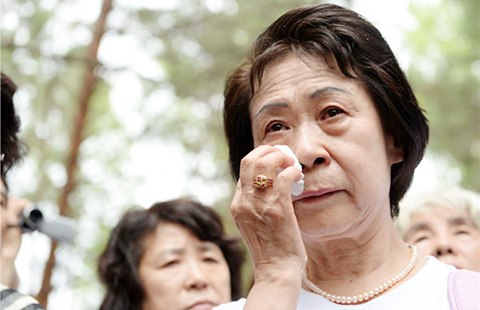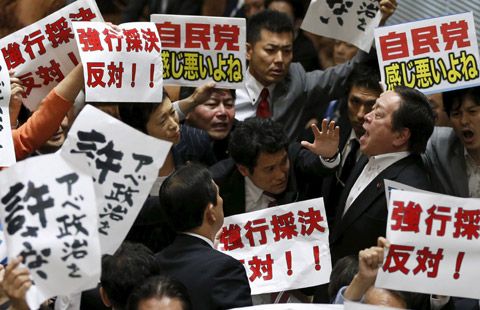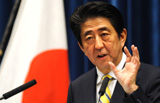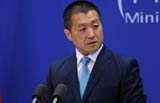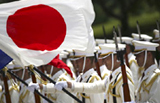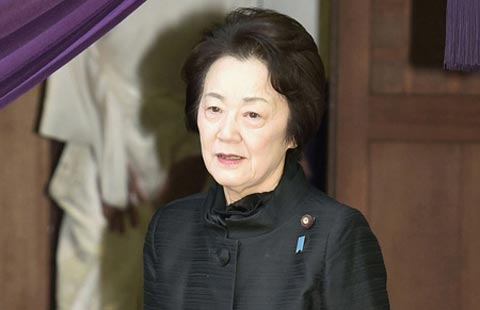Japanese war orphans visit graves of adoptive Chinese parents
[2015-07-14 07:22]A group of 54 Japanese citizens paid a visit to the graves of their adoptive Chinese parents in Northeast China's Heilongjiang province.
Draft laws to increase powers of military approved by committee
[2015-07-16 07:51]A committee of Japan's lower house passed controversial security bills aimed at beefing up the role of Japan's military on Wednesday, despite domestic opposition and concern among neighboring countries.
Miyazaki joins protests against move to widen military role
[2015-07-14 09:12]Japan cannot use military strength to counter China, said director Hayao Miyazaki as he joined a chorus of protest against a change in Japan's security policy.
President Xi invites Japanese PM Abe to attend victory celebration
[2015-07-11 00:20]China invited Japan's PM Shinzo Abe to participate in celebrations to mark the 70th anniversary of the victory against Japanese Aggression.
China urges Japan to gain neighbors' trust with actions
[2015-06-16 19:17]A Chinese Foreign Ministry spokesperson urged the Japanese government to take tangible action to get the trust of its neighbors on Tuesday.
China blasts Japan's move on agenda at G7 summit
[2015-06-09 07:29]Beijing said "no other country has the right to interfere" in the South China Sea, responding to Japan's stated intention to put discussion of the issue on the G7 summit's agenda.
3,000-strong team from Japan signals thaw in relationship
[2015-05-22 07:29]A Japanese delegation with more than 3,000 members is visiting China, a development viewed by observers as the latest sign of progress in ties.
Japan should issue apology to Asian states, ex-PM says
[2015-05-11 06:58]Japan should again apologize to other Asian countries for its wartime behavior, according to the country's former prime minister Tomiichi Murayama.
Response to Japan PM's speech, visit
[2015-04-30 13:52]Asian-American community leaders express annoyance at Japanese Prime Minister Shinzo Abe's speech at the US Congress on Wednesday and said the new defense guidelines might bring instability to the South China Sea.
Military issues past, present engulf Abe
[2015-04-30 13:39]When Japanese Prime Minister Shinzo Abe stepped into the well of the US Capitol on Wednesday, reminders of his country's World War II-era military aggression were right outside. Abe instead chose to focus on future military matters - an enhanced alliance with the United States.
Yasukuni Shrine visit
[2015-04-23 10:04]A minister of the Japanese Prime Minister Shinzo Abe's Cabinet visited the war criminal-honored Yasukuni Shrine on Thursday, one day after Chinese President Xi Jinping told Abe that history issue is a major matter of principle concerning political basis of bilateral ties.
Abe's tepid offering of remorse bad omen for WWII anniversary statement
[2015-04-23 09:54]Japanese Prime Minister Shinzo Abe on Wednesday expressed his "deep remorse" for some of Japan's atrocities during Word War II, but he eschewed referencing key phrases from previous war statements.
